During times of national social and economic difficulty, without legislation and protection mechanisms, marginalized and vulnerable groups are excluded from social and economic processes. Thus, the economy loses profits, society loses integrity, and vulnerable population groups, in turn, lose support and development opportunities.
To overcome these problems and contribute to the economic stabilization of the eastern region, USAID Economic Resilience Activity ( ERA) provides comprehensive assistance to:
- micro, small and medium-sized enterprises that are owned by or officially employ representatives of vulnerable population groups of Donetsk and Luhansk oblasts, as well as the Sea of Azov region (Berdiansk, Melitopol and Henichesk),
- non-governmental organizations (NGOs) from these regions, through the involvement of vulnerable groups in economic activities and provision of appropriate resources and professional training.
The following groups and categories are considered as vulnerable and hard-to-reach populations:
- People with disabilities (PWD)
- Internally displaced people (IDPs)
- Returnees
- IDP hosting communities
- Women and elderly women of 55+ years old
- Elderly men of 60+ years old
- Youth with incomplete or complete secondary education
- Single women-headed households
- LGBTI community (lesbian, gay, bisexual and transgender)
- ATO (Anti-Terrorist Operation) and JFO (Joint Forces Operation) veterans
- Employees who have been laid off due to staff reduction or closure of an enterprise
- Youth from non-government controlled areas (NGCA) enrolled in educational institutions located in the government-controlled areas (GCA) of target regions, and graduates of educational institutions located in GCA who lived in NGCA before study
- Parents of families with many children and/or children with disabilities
- Disadvantaged ethnic minority groups including Roma, Greek and others as self-identified
- People living within 5 km of and in the 5–20 km buffer zone along the contact line (GCA)
- Gender-based violence survivors
ERA’s activities are based on the principles of gender equality; therefore, we provide equal opportunities for all persons, regardless of their sex or gender. We ensure equal rights and opportunities of all people involved in economic activities. During direct implementation of grant agreements, our grantees ensure an appropriate gender balance among participants and target beneficiaries.
Currently within the Inclusion Component, ERA offers the following opportunities:
- Training, mentoring programs and study tours: a free opportunity for MSMEs to improve their business skills, learn about the latest business trends and get advice from leading experts. Educational opportunities are also offered to self-employed or vulnerable population representatives who are planning to start their own business or acquire a new profession. The full list of available trainings can be found at the following link.
- Joint interventions of NGOs and ERA aimed at certain vulnerable population groups.
- Grants for MSMEs – micro (10 employees), small (10-50 employees) and medium-sized enterprises (up to 250 employees), which have successfully operated in Donetsk and Luhansk oblasts and have the potential to engage representatives of vulnerable groups.
- Grants to NGOs fostering development of MSMEs focusing on vulnerable populations in areas most affected by the armed conflict.
- Grants to NGOs implementing educational initiatives designed to develop local human resources and help vulnerable population groups acquire skills for successful employment.
- Development of an inclusive network of NGOs, business associations.




